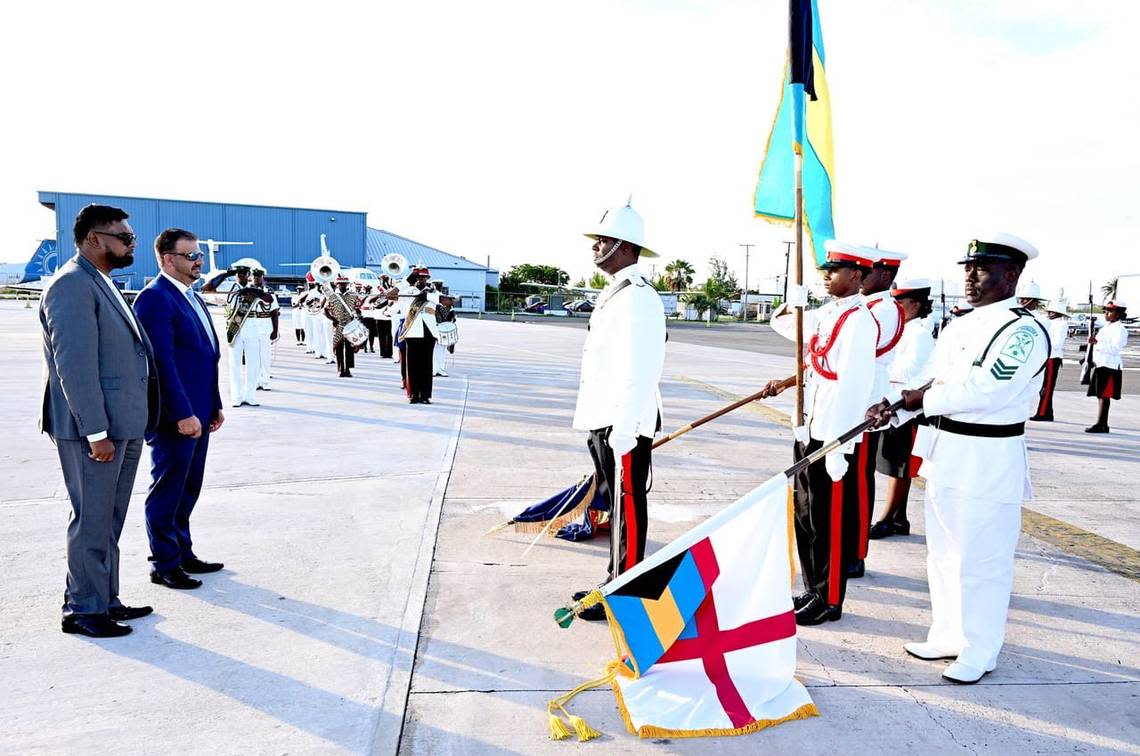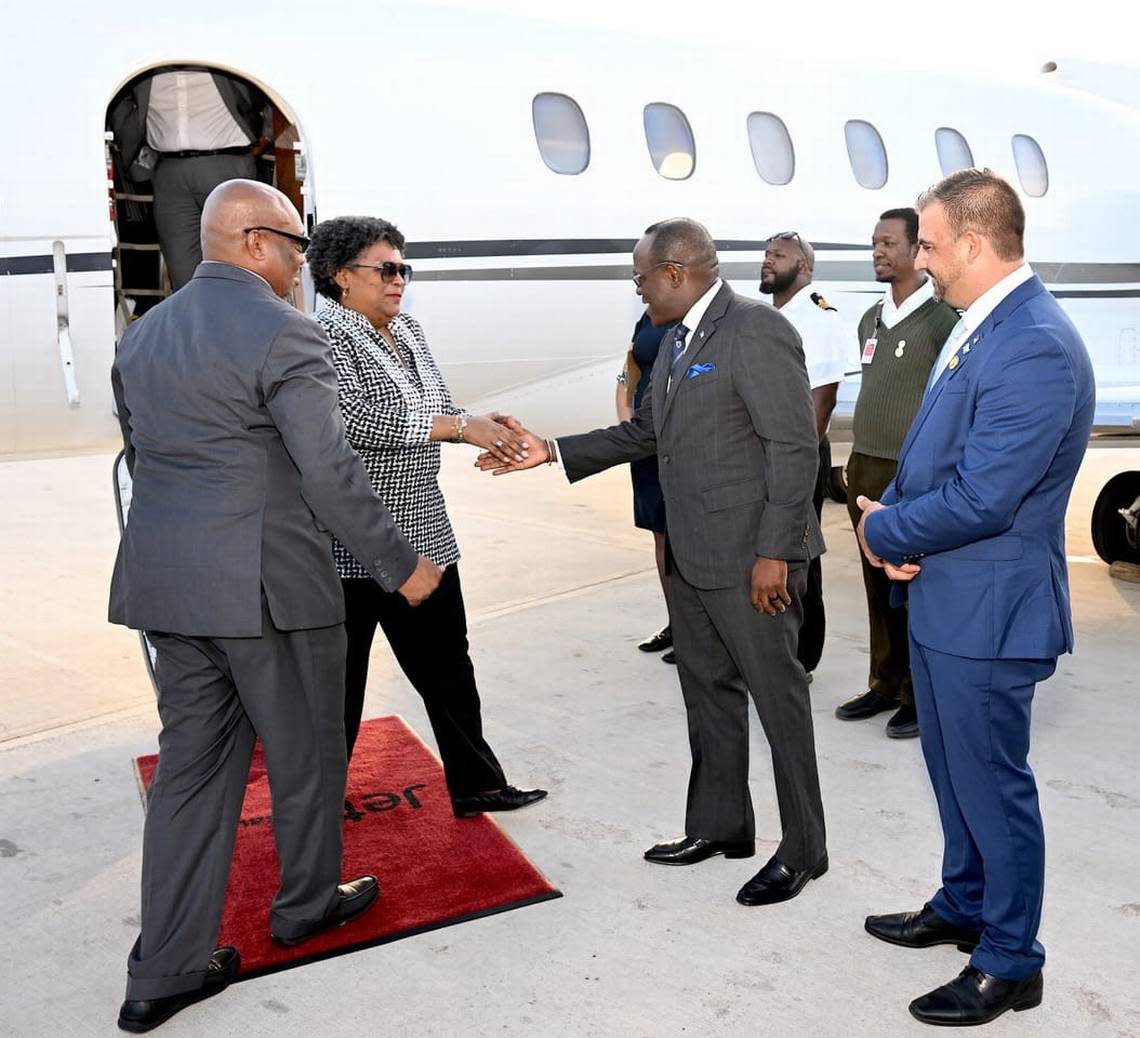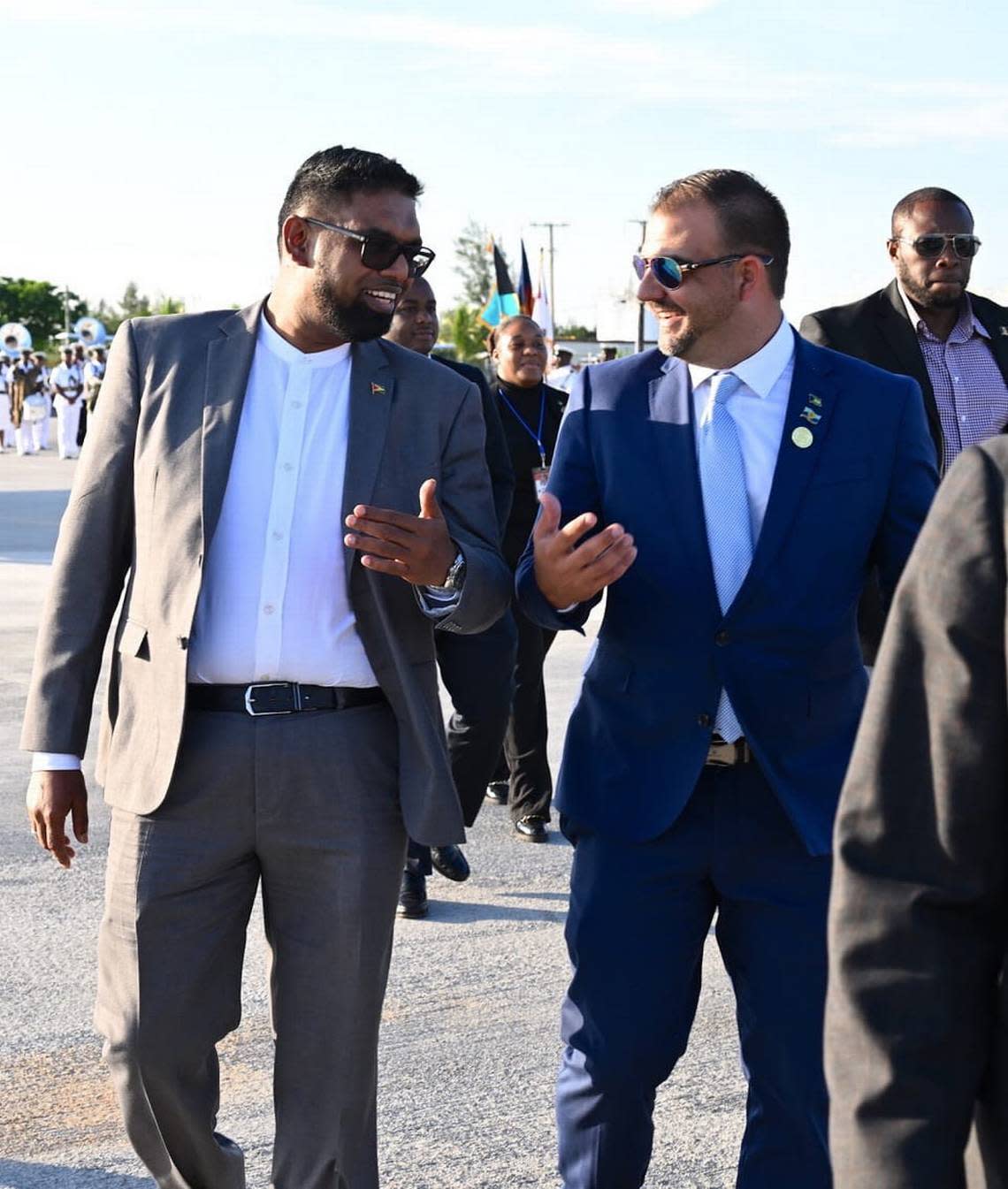As VP Harris visits Bahamas, members of Congress push for new U.S. Caribbean policy
As U.S. Vice President Kamala Harris makes a historic visit to the Bahamas Thursday for a high-level meeting with Caribbean leaders to advance the administration’s climate-change agenda and a new partnership with the region, two high-ranking members of the U.S. House Foreign Affair Committee are pushing for more from the United States.
Reps. Joaquin Castro, D-Texas, and Maria Elvira Salazar, R-Miami , the highest ranking Democrat and Republican on the House Foreign Affairs Subcommittee on Western Hemisphere Affairs, want to revamp the United States’ relationship with the region by adopting a new strategy to address the climate crisis in the Caribbean, the growing threat of illicit gun trafficking and violence and other areas of particular concern to Caribbean governments. They include health and energy security, and initiatives to address hunger.
Along with New York Congressman Adriano Espaillat, who sits on the House Appropriations Committee, Castro and Salazar are introducing a bill called the U.S.-Caribbean Strategic Engagement Act of 2023, which would update the 2016 law guiding U.S. policy with the Caribbean, its private sector and civil society.
“Today, as we explore new possibilities for regional integration and economic growth and confront new threats — from climate change to democratic backsliding — the time has come for an updated strategy,” said Castro, who with his 2023 amendment would now require the submission of an updated multi-year strategy for the United States’ support of Caribbean government initiatives. “The U.S.-Caribbean Strategic Engagement Act of 2023 demonstrates Congress’ bipartisan commitment to deepening our relationship with Caribbean nations and improving the lives of people across the Western Hemisphere.”
Castro said in the seven years since Congress adopted the U.S. -Caribbean engagement policy, the challenges and threats facing the region have changed significantly.

Today, the region is a top smuggling destination for firearms and accounts for about half of all U.S. firearms-export investigations; climate change has made island-nations, already vulnerable to hurricanes and tropical storms, even more so as rains and drought become more frequent, and economic growth has taken a hit thanks to the continued fallout of the COVID-19 pandemic.
Meanwhile, issues like rising food prices, deepening hunger, the high cost of energy and the lack of access to low-interest development financing persist, leaving several nations to turn to China for help with new road and bridge construction.
Those realities have not been lost on the Biden administration, which has held three meetings ahead of the vice president’s visit to Nassau, Bahamas, with leaders of the 15-member Caribbean Community bloc known as CARICOM, the Dominican Republic and the Secretary General of CARICOM to try to come up with concrete, joint solutions.
During the visit, Harris is expected to announce tens of millions of dollars in new assistance and initiatives focused on clean energy, help with low-income financing as assistance with stemming gun-running, which Caribbean leaders complain is fueling homicides in their territories.
“The vice president has repeatedly made clear in her prior engagements that as neighbors, we share common bonds and interests with the Caribbean,” a senior administration official said ahead of Harris’ arrival. “And she views strengthening our partnership as key to our shared prosperity and security.”
The visit to The Bahamas is Harris’ fourth multilateral meeting with Caribbean leaders, and her first visit to the region as vice president. She is also the highest ranking U.S. official to visit The Bahamas since its independence in 1973, 50 years ago next month.
Harris last met with leaders during the Ninth Summit of the Americas in Los Angeles, where she rolled out the administration’s new partnership on climate change and energy but received some push back as Guyana, Suriname and Trinidad and Tobago made it clear that they were not ready to completely give up fossil fuels, given their lucrative oil reserves.
Since then, working groups on both sides have met to hammer out details, including how the U.S. can better support Caribbean nations in their push to get access to more favorable development financing terms.

Supports of the bipartisan bill do not see their push as competition but about complementing what the administration is doing, and to ensure that subsequent administrations focus U.S. policies on issues the region cares about. Also, the bill, unlike the proposed bipartisan Caribbean Basin Security Authorization Act, deals with a much larger set of issues that relate to engagements between the United States and the Caribbean, calling for a multi-year strategy on security, climate and energy, nutrition, health and digital connectivity.
An updated strategy, aides say, will convincingly demonstrate the U.S. commitment to the region and its sensitivity to their needs, and counter efforts by other nations that seek to undermine U.S. influence.
Within the updated strategy, the Castro bill specifically calls for the U.S. to prioritize:
▪ Reducing the flow of illicit firearms from the U.S. to the Caribbean and providing technical support, training and information-sharing to Caribbean security forces charged with monitoring maritime borders, including formal and informal ports of entry.
▪ Improving energy security, resiliency and independence by working to finance increased access to diverse, reliable, secure and affordable renewable power solutions.
▪ Supporting regional adaptation and resilience to the climate-driven effects of severe weather events and natural disasters.
▪ Advancing cooperation on democracy and human rights throughout the region.
▪ Improving public health cooperation and infrastructure to mitigate health concerns and threats to the Caribbean region through professional exchanges, medical education and U.S. exports of medical services, technology and pharmaceuticals.
▪ Supporting regional initiatives to reduce hunger throughout the Caribbean.
▪ Expanding Internet access throughout the region, especially for marginalized communities, while working cooperatively to enhance data privacy and security.
▪ Advancing access to education and critical skills for at-risk youth, women and girls in the Caribbean region.

Aides say that they do not expect an additional cost and that developing the new strategy would align with existing resources.
“It is in the best interest of South Florida and the United States to have a secure, prosperous, and sovereign Caribbean,” Salazar said. “We need to have a productive strategy to make sure it remains one of the world’s top destinations for investment and tourism. A safe Caribbean is good for tourism, national security, and eases the migration crisis.”
